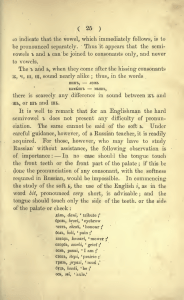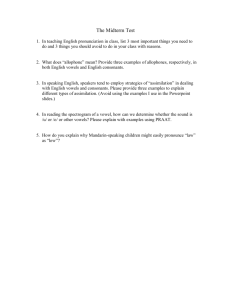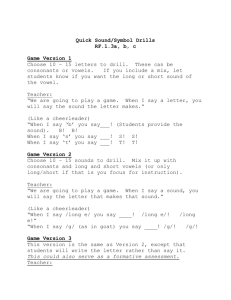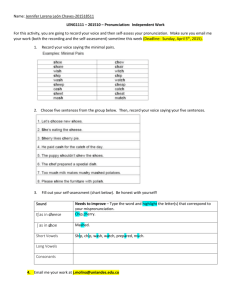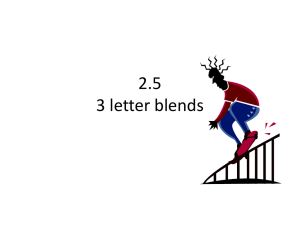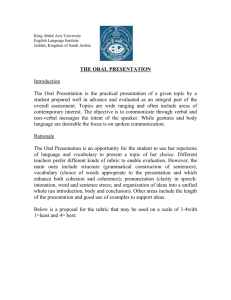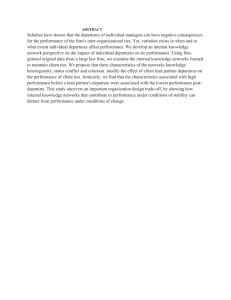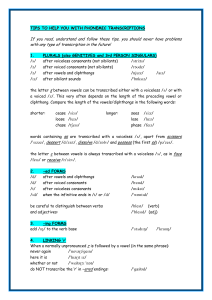Characteristics of ‘English as a Lingua Franca’ (‘ELF’)
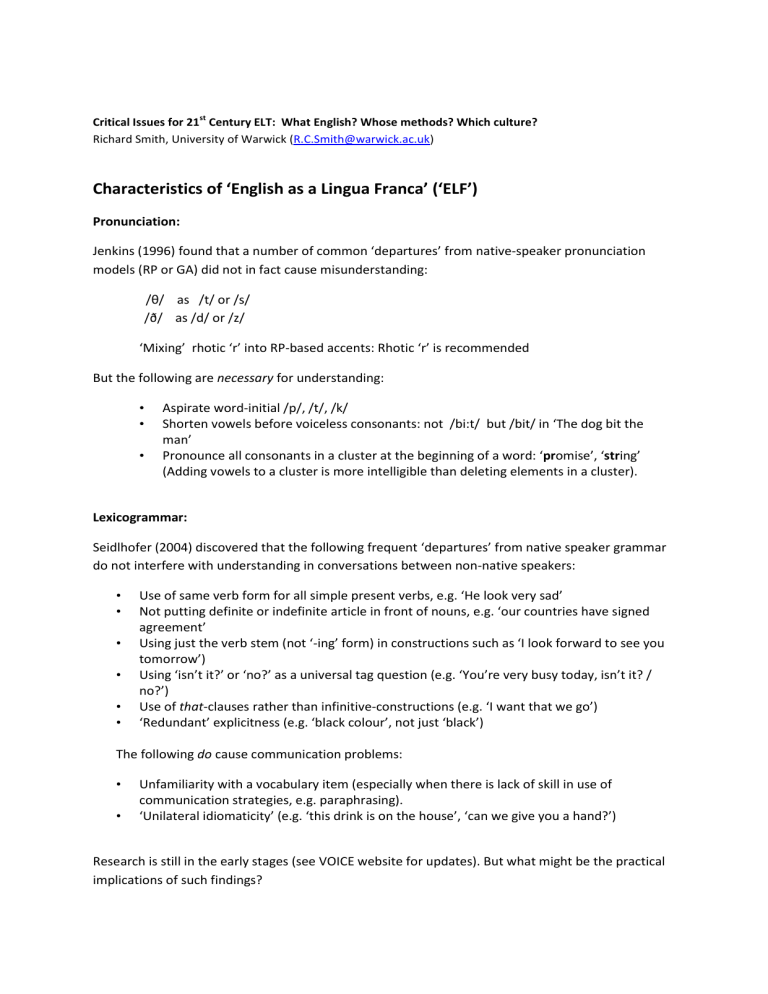
Critical Issues for 21 st
Century ELT: What English? Whose methods? Which culture?
Richard Smith, University of Warwick ( R.C.Smith@warwick.ac.uk
)
Characteristics of ‘English as a Lingua Franca’ (‘ELF’)
Pronunciation:
Jenkins (1996) found that a number of common ‘departures’ from native-speaker pronunciation models (RP or GA) did not in fact cause misunderstanding:
/θ/ as /t/ or /s/
/ð/ as /d/ or /z/
‘Mixing’ rhotic ‘r’ into RP-based accents: Rhotic ‘r’ is recommended
But the following are necessary for understanding:
• Aspirate word-initial /p/, /t/, /k/
• Shorten vowels before voiceless consonants: not /bi:t/ but /bit/ in ‘The dog bit the man’
• Pronounce all consonants in a cluster at the beginning of a word: ‘ pr omise’, ‘ str ing’
(Adding vowels to a cluster is more intelligible than deleting elements in a cluster).
Lexicogrammar:
Seidlhofer (2004) discovered that the following frequent ‘departures’ from native speaker grammar do not interfere with understanding in conversations between non-native speakers:
• Use of same verb form for all simple present verbs, e.g. ‘He look very sad’
• Not putting definite or indefinite article in front of nouns, e.g. ‘our countries have signed agreement’
• Using just the verb stem (not ‘-ing’ form) in constructions such as ‘I look forward to see you tomorrow’)
• Using ‘isn’t it?’ or ‘no?’ as a universal tag question (e.g. ‘You’re very busy today, isn’t it? / no?’)
• Use of that -clauses rather than infinitive-constructions (e.g. ‘I want that we go’)
• ‘Redundant’ explicitness (e.g. ‘black colour’, not just ‘black’)
The following do cause communication problems:
• Unfamiliarity with a vocabulary item (especially when there is lack of skill in use of communication strategies, e.g. paraphrasing).
• ‘Unilateral idiomaticity’ (e.g. ‘this drink is on the house’, ‘can we give you a hand?’)
Research is still in the early stages (see VOICE website for updates). But what might be the practical implications of such findings?

